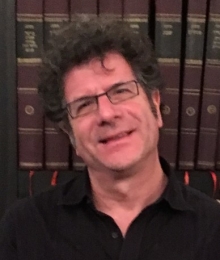Law and Religion
Course Information
- Course Number
- L9450-LEC
- Curriculum Level
- Upperclass
- Areas of Study
- Constitutional Law, Human Rights, Interdisciplinary Legal Studies, Legal History and Law and Philosophy
- Type
- Lecture
- Additional Attributes
- New Course
Section 001 Information
Instructor
 Nathaniel Berman
Visiting Professor of Law
Nathaniel Berman
Visiting Professor of Law
Section Description
The Supreme Court’s jurisprudence on religion has undergone a dramatic transformation in recent years, dramatically accelerating over the past decade. This transformation affects both the Constitutional strictures of the First Amendment and a variety of statutory provisions, such as the Religious Freedom Restoration Act. The Court has adopted new understandings of the “free exercise” of religion, while limiting the scope of the prohibition on the “establishment of religion.” We will study this transformation by situating it in relation to the very different landmark decisions of the mid- to late-20th century. In so doing, we will explore the ways that legal decisions construct the very category of “religion” in setting the boundaries between secular law and religious life. Is “religion,” as a separate sphere of society, a cultural and historically specific construct? Are there universally recognized criteria for “religion,” such as an organized community or a belief in God? Should religious communities be exempt from some secular legal regimes, such as anti-discrimination law? We will draw on perspectives from political theory and theology to enrich our understanding of the legal materials.
- School Year & Semester
- Fall 2024
- Location
- WJWH L104
- Schedule
-
Class meets on
- Monday
- Wednesday
- Points
- 3
- Method of Evaluation
- Paper
- J.D Writing Credit?
- Minor (upon consultation)
Learning Outcomes
- Primary
-
- At the end of the course, students will have acquired understanding of and/or facility in a specific body of law, including major policy concerns
- At the end of the course, students will have acquired understanding of and/or facility in doctrinal analysis, including close reading of cases and precedents, and application to facts
- At the end of the course, students will have acquired understanding of and/or facility in jurisprudential considerations in legal analysis
- At the end of the course, students will have acquired understanding of and/or facility in the historical development of law and legal institutions
- At the end of the course, students will have acquired understanding of and/or facility in use of other disciplines in the analysis of legal problems and institutions, e.g., philosophy; economics,other social sciences; and cultural studies
Course Limitations
- Instructor Pre-requisites
- None
- Instructor Co-Requisites
- None
- Requires Permission
- No
- Recommended Courses
- None
- Other Limitations
- None